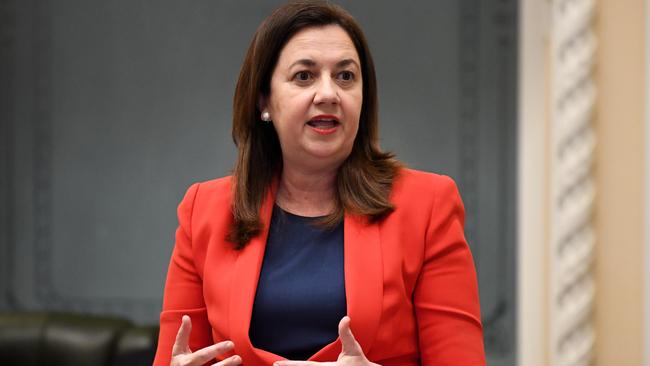Mental trauma now grounds for euthanasia in Queensland draft law
Draft right-to-die legislation in Queensland has widened the scope of euthanasia law, making ‘mental suffering’ a ground for eligibility.

Draft right-to-die legislation in Queensland has widened the scope of euthanasia law, making “mental suffering” a ground for eligibility and providing earlier access to voluntary assisted dying for the terminally ill.
Doctors will be allowed to raise with a dying patient the option of ending their life, while those with a disability or mental illness can apply for VAD under a draft bill framed by the Queensland Law Reform Commission.
The eligibility period has been doubled to allow all people given 12 months or less to live access to VAD, up from six months in the benchmark Victorian law and frameworks in Western Australia and Tasmania that are yet to come into effect.
Unlike those jurisdictions, Queensland has no upper house of state parliament and the nation’s fourth VAD law is certain to be enacted after the bill is introduced by Annastacia Palaszczuk’s Labor government next week. “For many, this will be the most important work this parliament will do,” the Premier said on Tuesday, releasing draft legislation.
Critics of voluntary euthanasia, led by the churches, argue that the reach of VAD law has expanded each time it has come before another state parliament.
The draft Queensland legislation largely conforms by restricting eligibility to over-18s diagnosed with a disease, illness or medical condition that is advanced, progressive and will cause death within a year. The patient must be “suffering” to a degree they consider intolerable.
In an accompanying report, the QLRC said the definition of suffering was not limited to physical pain or symptoms and could include “mental suffering” as well as that caused by medical treatment.
This is the first time the psychological impact of terminal disease been cited in relation to VAD law, along with the implications for mentally ill and disabled people.
“This approach recognises that suffering is a personal experience, and … may take various forms,” the commission said. “It respects the person’s autonomy, reflects a person-centred approach to care and is consistent with the value of reducing suffering.”
Although a person would not be eligible if they only had a disability or mental illness, they could be helped to die should they meet the other criteria of being terminally ill and having the decision-making capacity to elect for VAD, the QLRC reported.
“This makes it clear that people who have a disability or a mental illness have the same rights and protections as other members of the community, and should not be discriminated against or denied access to voluntary assisted dying if they meet all the eligibility criteria,” it said.
As is the case in WA but not in Victoria, a GP or nurse practitioner could initiate a discussion of VAD provided the patient was also informed of treatment and palliative care options.
Unlike in Victoria, where the lethal dose is required to be self-administered in most cases, patients in Queensland could request a doctor or nurse to do it, though self-administration remained the “default option”.
Another point of difference is the assessment process: in Victoria, the second of two doctors who sign off must be a specialist in the medical area concerned.
In Queensland, the “consulting” practitioner could be another GP with the requisite five years’ experience and training in VAD.
Exemption from the minimum one-year residency requirement could be granted if a person from interstate had a “substantial connection” to Queensland.
On extending the life expectancy criterion to 12 months, the QLRC said: “A timeframe of six months may be more consistent with an end of life clinical trajectory for most advanced cancers (but) 12 months encompasses clinical trajectories of people with other types of eligible diseases ”
Catholic Archbishop of Brisbane Mark Coleridge said the draft legislation was unsurprising but “deeply disappointing” when the focus on palliative care had been lost “amid haste to introduce euthanasia”.




To join the conversation, please log in. Don't have an account? Register
Join the conversation, you are commenting as Logout